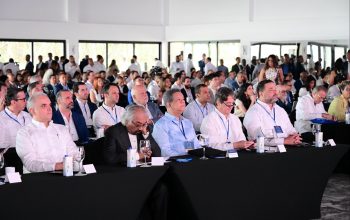news
GFDD Reaffirms Commitment to UN Development Agenda at Working Luncheon during ECOSOC High Level Segment
July 6, 2012
During the HLS of ECOSOC held on July 2-9, 2012, GFDD Executive Director Natasha Despotovic, reinforced GFDD’s commitment to the goals of the UN, at a private luncheon hosted by the Convention on Independent Financial Advisors (CIFA), in honor of the Vice-President of the ECOSOC, Ambassador Alfonso Luis De Alba. Hanifa Mezoui, from the President of the General Assembly’s Office, and a longtime supporter of affiliated NGO’s, introduced Ambassador
De Alba.
The event provided an opportunity for a small number of NGOS, UN departments and bodies to exchange ideas and share new concepts with respect to the innovative work each is undertaking in the area of youth and employment opportunities.
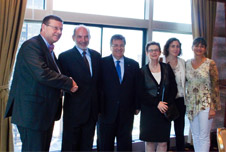
The ECOSOC serves as the central forum for discussing international economic and social issues
and for formulating policy recommendations addressed to member states and the United Nations system. Despite the many strides taken by the ECOSOC over the years, there are concerns that some of its effectiveness and relevance has eroded. Governance of the multilateral system has historically been complex and fragmented and this has limited the capacity of ECOSOC to influence international policies in trade, finance and investment.
At the luncheon, de Alba, who is slated
to take over the role of President, spoke of his commitment to reform and of his ideas for making the ECOSOC agenda more transparent. Additionally, with the cooperation of NGO’s, he emphasized his goal to create an effective organization capable of great achievement and one that enhances the relevance and contribution of the council itself.
Referring to the “post-2015” period, de Alba stated that he envisioned the ECOSOC taking a leadership
role in serving as a forum for forming the consensus needed for future development agenda. Emphasizing how the MDG agenda has worked well in rallying global support for a human development-centered agenda, de Alba spoke in depth about the organizations future goals and challenges and asserted that the council will need to rely on the advice of experts, such as NGOs to find the right answers.
The following is an excerpt:
‘We will have to build on past
accomplishments and our focus needs to remain at the core of the post-2015 agenda. However, the world has changed since 2000 and we are facing enormous challenges which did not seem as pressing at the time as they are today. The world population continues to increase at an unprecedented pace. Pressures on the natural environment are building up and, unless we change course, they will make livelihoods unsustainable in the coming decades. We have seen a confluence of crises in recent years: a
food security crisis, an energy security crisis, the global financial crisis as well as a brewing environmental crisis, as visible, for instance, in the increase in natural disasters. We are witnessing rising violence and insecurity in many parts of the world. The post-2015 development agenda should address all of these challenges and suggest credible approaches towards a secure, sustainable and inclusive pathway for global development. This is an enormous task and responsibility.
The GFDD and FUNGLODE’s affiliation with ECOSOC received the approval of 54 countries for its ability and ample experience and dedication to research and discuss global issues that involve the well-being of Dominicans and the sustainable development of the country.
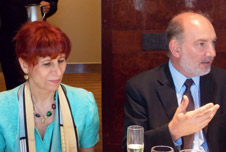 |
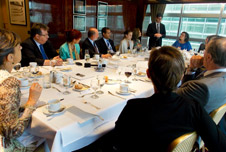 |
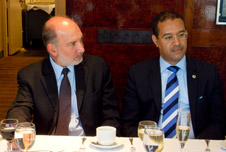 |
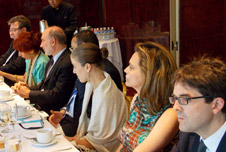 |
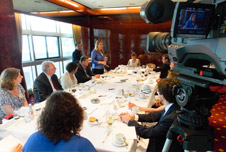 |

